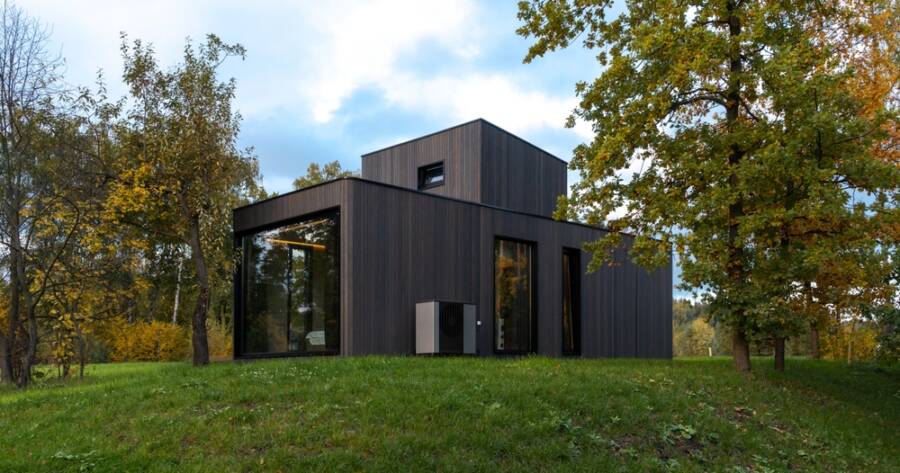Modular homes are becoming a popular alternative to traditional homes, offering efficiency, customization, and cost-effectiveness. If you’re thinking of buying or building a modular home, it’s crucial to understand the pros and cons, along with the key steps to finding the right manufacturer for you. Discover the possibilities of this alternative to traditional construction!
Pros of Modular Homes
Modular homes offer several distinct advantages that make them an appealing option for prospective homeowners. From their streamlined construction process to energy-efficient designs, modular homes provide benefits that cater to both convenience and sustainability. Here are a handful of benefits that come from modular homes:
1. Faster Construction Time
One of the main advantages of modular homes is the speed of construction. Since the majority of the building takes place in a factory setting, the process can be much faster than building a traditional home on-site. Weather delays are minimized, and the construction schedule is more predictable, allowing homeowners to move in sooner.
2. Customization Options
Contrary to some misconceptions, modular homes can be highly customizable. Buyers can choose from a variety of floor plans, finishes, and features to create a home that suits their preferences. While there may be some limitations depending on the manufacturer, many modular homes offer flexibility in design and layout.
3. Energy Efficiency
Because modular homes are built in a controlled factory environment, they are often constructed to higher energy-efficiency standards than traditional homes. Tight building techniques and modern materials can lead to better insulation, reduced energy consumption, and lower utility bills.
4. Quality Control
Since modular homes are built in a factory, quality control can be more consistent compared to on-site construction. The controlled environment helps ensure that the materials are protected from weather and other external factors, reducing the risk of damage or defects during the building process.
Cons of Modular Homes
While there are great advantages to modular homes, they come with some potential drawbacks as well. Some of these disadvantages can include:
1. Limited Land Availability
One potential drawback of modular homes is the challenge of finding suitable land. If you don’t already own land, purchasing a lot that meets local zoning regulations for modular homes can be a hurdle. Not all areas are zoned for modular construction, and some neighborhoods may have restrictions that limit or prohibit modular homes.
2. Financing Challenges
While financing for modular homes is available, the process can be more complicated compared to traditional homes. Some lenders may be unfamiliar with modular construction, and securing a loan could require additional steps, such as obtaining both a construction loan and a mortgage. It’s important to work with lenders experienced in modular home financing.
3. Potential for Resale Challenges
Although the quality and durability of modular homes are comparable to traditional homes, there can be some stigma or misconceptions about modular construction that may impact resale value. Buyers should be prepared for the possibility that selling a modular home could be more challenging in certain markets.
4. Transportation and Site Work Costs
While modular homes are built off-site, transporting the modules to the construction site and completing the site work (foundation, utilities, etc.) can add complexity and cost to the project. Depending on the location, transporting large modules may require special permits or arrangements, which can affect the timeline and budget.
The Top Modular Home Manufacturers in the U.S.
If you’re considering a modular home, it’s essential to choose a reputable manufacturer that offers quality construction and customization options. The following are some of the top U.S. modular home manufacturers known for their innovation, energy efficiency, and design flexibility:
- Clayton Homes: A leader in the industry, offering energy-efficient designs and customizable floor plans.
- Cavco Industries: Known for both standard and luxury modular homes with a focus on detail and quality.
- Commodore Homes: Provides customizable, high-quality modular homes with a focus on energy efficiency.
- Palm Harbor Homes: Specializes in affordable modular homes with extensive customization options and innovative designs.
- Skyline Homes: A trusted manufacturer known for its energy-efficient models and customizable options.
These companies focus on compliance with building codes and offer reliable, high-quality modular homes, ensuring a smooth building process tailored to individual preferences.
Is a Modular Home Right for You?
Modular homes offer a streamlined, customizable, and energy-efficient alternative to traditional housing. However, potential buyers should be aware of the challenges, including land availability, financing complexities, and resale considerations. Understanding the pros, cons, and building process can help you make an informed decision about whether a modular home is the right choice for you.
